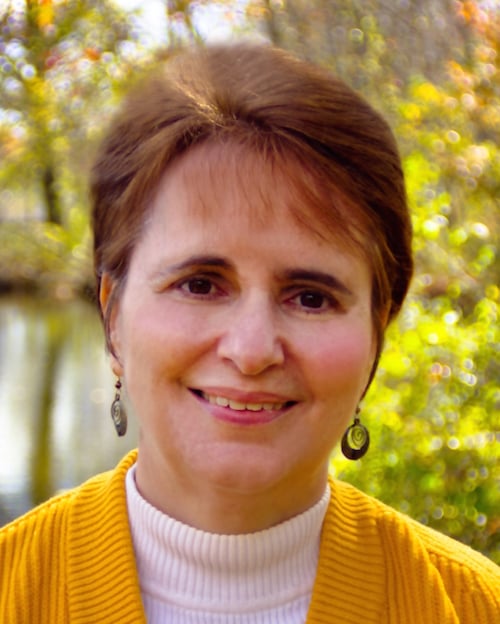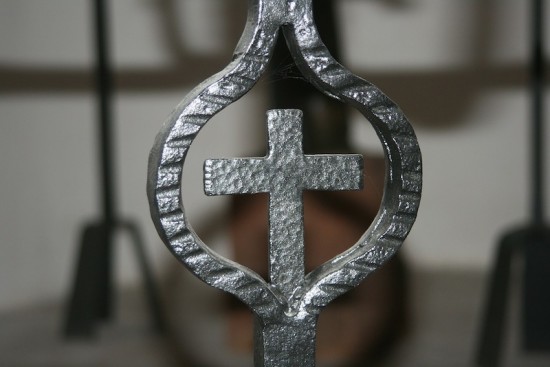In Matthew 22, Jesus gave the two great commandments: "Love the Lord our God with all your heart and with all your soul and with all your mind" and "Love your neighbor as yourself." (verses 37-39). He placed a special emphasis on loving God: "This is the first and greatest commandment."
It may seem obvious why Jesus placed this emphasis. Of course we should love God first. Our Lord knew from his own experience how vital it was to observe these commandments in their proper order. Each day began and ended in silence, alone with his Father. It was never a rushed prayer as he ran off with his disciples to continue his ministry. It was extended time, committed time, quality time.
Prayer was sustenance to Jesus, filling him with the graces needed to empty himself in service each day. It was not from his power that he gave, but from the power of his heavenly Father.
In her October 2013 article in America Magazine, Annie Selak calls this kenosis. She writes,"Through kenosis we empty ourselves of our will and become filled with God's will. Simply speaking, this is self-gift."
Women are great givers. Mothers empty themselves for their children. Daughters are usually the caretakers of their elderly parents. Nuns work tirelessly for the poor and oppressed of the world. Women organize in groups to serve the needs of their parish and community. Service is given in love and as an expression of faith. It does not come without risk however; burnout among the giving is chronic.
It is easy to get caught up in the activity of giving. In the beginning there is excitement and enthusiasm fueling great energy. We empty ourselves and keep giving. But if we cannot detect when we are empty and in need of being filled, we burn out, becoming demoralized, resentful and stagnant.
Being a giver can define us; it becomes our identity. We take pride in our giving and enjoy the accolades. It can feed the ego. And in our pride we forget that all this giving would not be possible without God's grace. We burn out because we forget to come back to the Source.
To Jesus, loving God first was not just because it was the proper thing to do. It was more than just paying lip service; it was a matter of life and death. Life comes from being filled with God's Holy Spirit; death comes from burnout when we think we can depend on our own power. It is life-giving to love our neighbor but death comes when our pride hijacks the work, making it our own.
Jesus could have easily believed in his own power. After all, he was God! The crowds hounded him and pressed in on him, begging for healing. His disciples needed his constant guidance; they had to be prepared to carry on his work. There was the pressure of so little time compounded by the ache in his heart for his lost sheep. Yet in his wisdom and perfect humility, Jesus understood the need to come home to Papa each night and be alone with him, allowing himself to be filled with the life-giving power of the Holy Spirit. He never owned the work. It belonged to his heavenly Father and he made that clear to the disciples.
Annie Selak writes, "Any form of self-gift is predicated upon a relationship with God. From this, giving of oneself becomes giving of God. It is not about me as a person with incredible gifts, but rather about God working through my experience and gifts ... we are not called to empty ourselves in such a way that we lose ourselves."
Taking time out from activity to spend time with God is a wonderful thing, often bringing consolation, peace and pleasure. We may even feel guilty about taking the time, our minds cluttered with thoughts of all we must do. Not to worry. Jesus has granted us the permission. He's done more than that: he has commanded us. Just as we must stop and take our meals each day so we must take nourishment from God. It is the only way to accomplish the work he has given to us.
God waits to be with you and delights in your company. How do you spend time with him? Where is your mountaintop? How have you felt nourished from your time with him?
Copyright 2014, Susan Bailey
About the Author

Susan Bailey
Susan Bailey is the author of River of Grace: Creative Passages Through Difficult Times (Ave Maria Press), and Louisa May Alcott: Illuminated by The Message (ACTA Publications), part of their Literary Portals to Prayer series. Along with her blogs Be as One and Louisa May Alcott is My Passion, Susan writes for the Diocese of Worcester newspaper, The Catholic Free Press.



.png?width=1806&height=731&name=CatholicMom_hcfm_logo1_pos_871c_2728c%20(002).png)
Comments